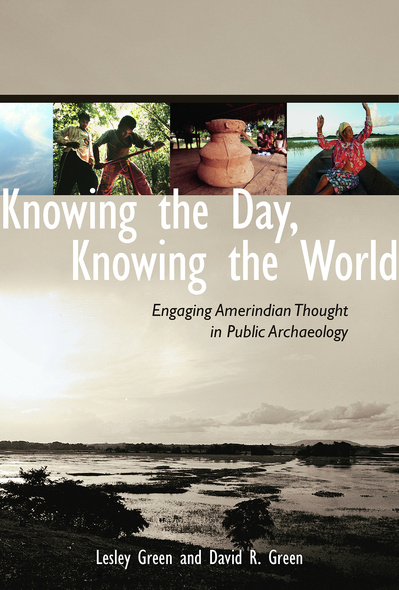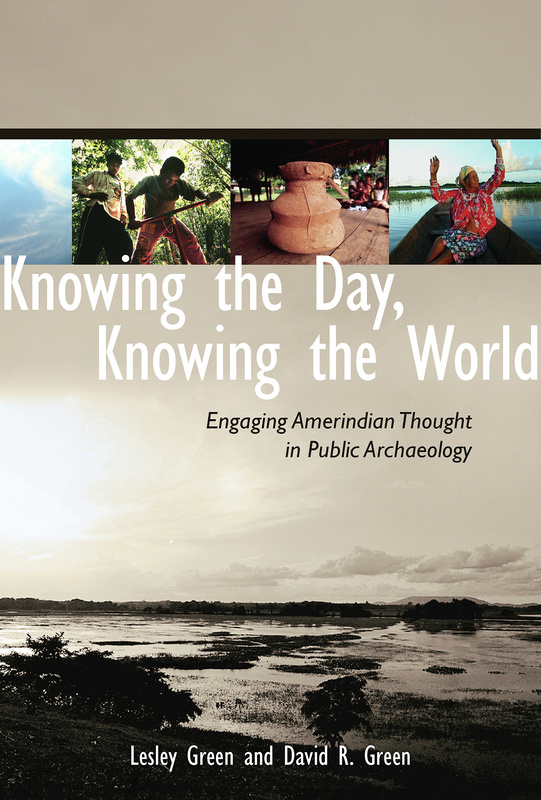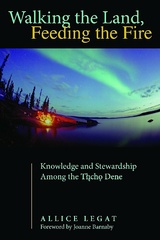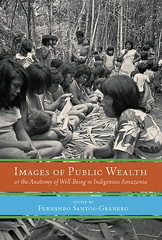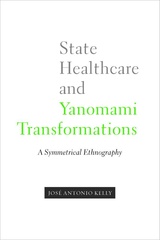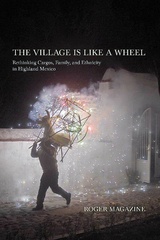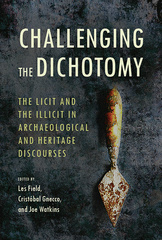Knowing the Day, Knowing the World
Engaging Amerindian Thought in Public Archaeology
By Lesley Green and David R. Green
The University of Arizona Press
Based on more than a decade of research in Palikur lands known as Arukwa in the state of Amapá, Brazil, Knowing the Day, Knowing the World reconsiders the dialogue between formal scholarship and Amerindian ways of knowing. Beginning and ending with a public archaeology project in the region, the book engages head-on with Amerindian ways of thinking about space, time, and personhood. Demonstrating that Palikur knowledges are based on movement and a careful theorization of what it means to be present in a place, the book makes a sustained case for engaging with different ways of knowing. It shows how this kind of research can generate rich dialogues about nature, reality, and the ethical production of knowledge.
The structure of the book reflects a gradual comprehension of Palikur ways of knowing during the course of field research. The text enters into the ethnographic material from the perspective of familiar disciplines—history, geography, astronomy, geometry, and philosophy—and explores the junctures in which conventional disciplinary frameworks cannot adequately convey Palikur understandings. Beginning with reflections on questions of personhood, ethics, and ethnicity, the authors rethink assumptions about history and geography. They learn and recount an alternative way of thinking about astronomy from the Palikur astronomical narratives, and they show how topological concepts embedded in everyday Palikur speech extend to different ways of conceptualizing landscape. In conclusion, they reflect on the challenges of comprehending alternative cosmologies and consider the insights that come from allowing ethnographic material to pose questions of modernist frameworks.
The structure of the book reflects a gradual comprehension of Palikur ways of knowing during the course of field research. The text enters into the ethnographic material from the perspective of familiar disciplines—history, geography, astronomy, geometry, and philosophy—and explores the junctures in which conventional disciplinary frameworks cannot adequately convey Palikur understandings. Beginning with reflections on questions of personhood, ethics, and ethnicity, the authors rethink assumptions about history and geography. They learn and recount an alternative way of thinking about astronomy from the Palikur astronomical narratives, and they show how topological concepts embedded in everyday Palikur speech extend to different ways of conceptualizing landscape. In conclusion, they reflect on the challenges of comprehending alternative cosmologies and consider the insights that come from allowing ethnographic material to pose questions of modernist frameworks.
Green and Green show how working with indigenous communities can lead to engagement with conceptual alterity through a public archaeology project among the Palikur in Amapá State, Brazil.’—Annual Review of Anthropology
‘Lesley and David Green write how distress and wonder drew them into another kind of archaeology among the Palikur of Brazil. Palikur knowledge as movement led them to conceptualize archaeology as ‘reading the tracks of the ancestors.’’—Archaeological Dialogues
‘A radical exercise in un-disciplining archaeology, an exquisitely written alternative to modernity.’—Cristobal Gnecco, co-editor of Archaeologies
‘Knowing the Day will change the way you think. Deeply theoretical while intensely personal, Knowing the Day shows what happens when Western assumptions of universal reasoning encounter different epistemological systems. As the chapters take you deeper into the thought-world of the Amazon, your own concepts of perception, identity, language and the constitution of knowledge begin to change. By the end of this journey, the hubris of key elements of conventional western thinking are painfully apparent.’—Martin Hall, Vice Chancellor of the University of Salford and Former President of the World Archaeological Congress
‘Through Lesley Green’s superb, thoughtful and moving discovery of an ‘ecology of predators’ we may well learn, together with her, that the most dangerous beings are the ones who feel at home everywhere, serving some universal cause and thus not knowing where they are.’—Isabelle Stengers, author of Cosmopolitics
Lesley Green is an associate professor of anthropology in the School of African and Gender Studies, Anthropology and Linguistics at the University of Cape Town, South Africa, where she leads the contested Ecologies Research cluster. David R. Green has worked as a translator and videographer on this project since 1997.
Preface
Acknowledgments and a Note on Authorship
Introduction. “The Things Left in the Ground”: Introducing Archaeology to Arukwa
1. “Are You Here?”: Personhood, Presence, Knowledges, and Knowing
2. “So Many Stories on This Day-World”: History as the Retracing of Tracks
3. Journeys with the Rain Stars: Making Sense of the Moving Cosmos
4. The Curvature of Surfaces: Cartesian Space, the Topology of Palikur Grammar, and Consubjective Space
5. “Reading the Tracks of the Ancestors”: Resources for Assembling Times Past
6. The Story Trails of Kwap: Archaeology, Provenance, and an Ecology of Predation
Epilogue. Beyond Matter Set in Space and Time: Engaging A merindian Thought in Public Archaeology
Notes
Bibliography
Index

